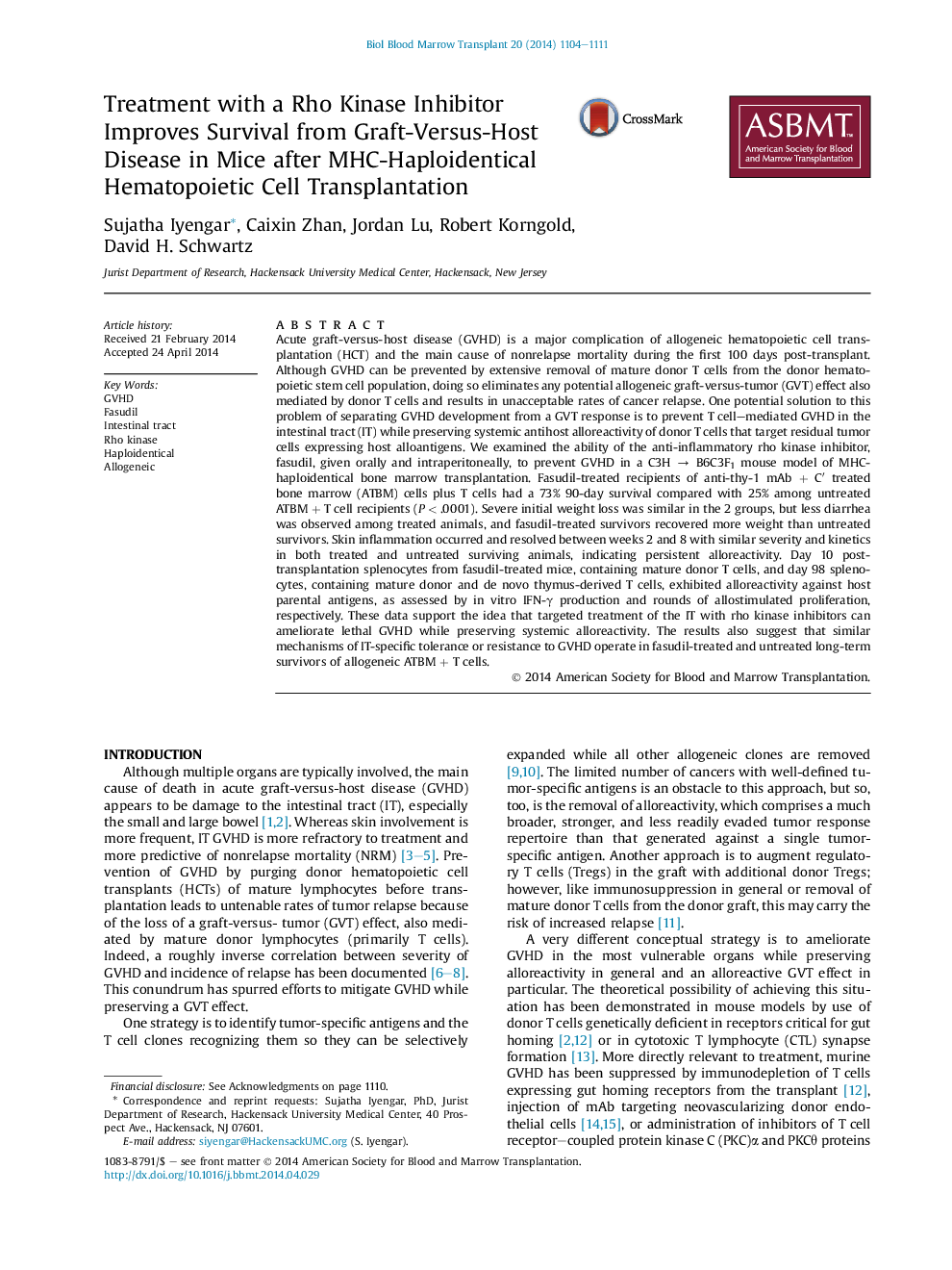| کد مقاله | کد نشریه | سال انتشار | مقاله انگلیسی | نسخه تمام متن |
|---|---|---|---|---|
| 2102040 | 1546277 | 2014 | 8 صفحه PDF | دانلود رایگان |

Acute graft-versus-host disease (GVHD) is a major complication of allogeneic hematopoietic cell transplantation (HCT) and the main cause of nonrelapse mortality during the first 100 days post-transplant. Although GVHD can be prevented by extensive removal of mature donor T cells from the donor hematopoietic stem cell population, doing so eliminates any potential allogeneic graft-versus-tumor (GVT) effect also mediated by donor T cells and results in unacceptable rates of cancer relapse. One potential solution to this problem of separating GVHD development from a GVT response is to prevent T cell–mediated GVHD in the intestinal tract (IT) while preserving systemic antihost alloreactivity of donor T cells that target residual tumor cells expressing host alloantigens. We examined the ability of the anti-inflammatory rho kinase inhibitor, fasudil, given orally and intraperitoneally, to prevent GVHD in a C3H → B6C3F1 mouse model of MHC-haploidentical bone marrow transplantation. Fasudil-treated recipients of anti-thy-1 mAb + C′ treated bone marrow (ATBM) cells plus T cells had a 73% 90-day survival compared with 25% among untreated ATBM + T cell recipients (P < .0001). Severe initial weight loss was similar in the 2 groups, but less diarrhea was observed among treated animals, and fasudil-treated survivors recovered more weight than untreated survivors. Skin inflammation occurred and resolved between weeks 2 and 8 with similar severity and kinetics in both treated and untreated surviving animals, indicating persistent alloreactivity. Day 10 post-transplantation splenocytes from fasudil-treated mice, containing mature donor T cells, and day 98 splenocytes, containing mature donor and de novo thymus-derived T cells, exhibited alloreactivity against host parental antigens, as assessed by in vitro IFN-γ production and rounds of allostimulated proliferation, respectively. These data support the idea that targeted treatment of the IT with rho kinase inhibitors can ameliorate lethal GVHD while preserving systemic alloreactivity. The results also suggest that similar mechanisms of IT-specific tolerance or resistance to GVHD operate in fasudil-treated and untreated long-term survivors of allogeneic ATBM + T cells.
Journal: - Volume 20, Issue 8, August 2014, Pages 1104–1111